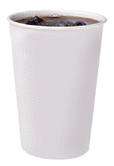NYC ban on super-sized sodas would cut consumers' calories: study

(HealthDay) -- A day before a public hearing on New York City's proposed ban on super-sized restaurant sodas, a new analysis finds that such a ban would spare consumers excess calories.
The proposed rule put forward by Mayor Michael Bloomberg would restrict the sale of sodas and other sugary drinks to servings of 16 ounces. While nutritionists applauded the move, critics see it as another step toward a "nanny state." The New York City Department of Health and Mental Hygiene has scheduled a public hearing on the issue for Tuesday.
Amid all of this, the real impact of reducing serving sizes is unknown. Now, three researchers from New York University have tried to quantify the effect by creating several scenarios.
"We wanted to give a sense of [what] the impact of the Bloomberg soda policy might be on consumer purchases," said researcher Brian Elbel, an assistant professor of medicine and health policy at NYU School of Medicine.
The report was published online July 23 in the New England Journal of Medicine.
To do this, Elbel's team focused on purchases of these drinks at fast-food restaurants.
The investigators found that if everyone switched from 32-ounce drinks to 16-ounce drinks, they would consume 63 fewer calories every time they bought a fast-food meal.
If, however, no one switched that would actually boost the number of calories they consume by about 30 calories more, Elbel said.
Elbel admitted that 63 fewer calories is just a drop in the bucket. "We know this alone is not going to bend the obesity curve in any large-scale way. That said, 63 is not nothing. It's a reasonable number to expect from any single policy," he said.
"If you get a few different policies that have this impact, then they could have a much larger impact overall," Elbel added.
The Bloomberg proposal has been criticized as limiting freedom of choice and another intrusion on the lives of citizens.
But, Elbel said, if the tide of the obesity epidemic is to be turned, government will necessarily be involved.
"A lot of what is influencing obesity is not that suddenly consumers just became weak-willed and started eating a lot," he explained. A lot of it has to do with the availability of large portions of unhealthy foods everywhere people look.
"Given that's what is driving a lot of obesity, it's hard to imagine a scenario where that gets better without some government intervention," Elbel noted.
"There are always going to be tradeoffs between individual choice and liberty and the government's role in protecting the health of its citizens, and the larger social and economic impact obesity can have," he said.
This is a policy that directly attacks portion size, Elbel stated.
"If you are a consumer who wants a lot of sugar-sweetened beverages, you can still do that; this just makes it a little more of a hassle to do so," he added. "For consumers who aren't so driven by that want for 32 ounces, it could have some positive impact on their health."
Commenting on the report, Dr. David Katz, director of the Prevention Research Center at Yale University School of Medicine, said: "While some of the strong reactions to Mayor Bloomberg's proposed ban on large sodas in New York City may suggest otherwise, neither the Mayor nor anyone else in public health cares about beverage size, per se.
"The real issue here is the calories feeding the obesity epidemic, and what actionable steps will help slow their seemingly inexorable flow," Katz said.
"The analysis by Elbel and colleagues suggests that, under most likely scenarios, calorie consumption would decline if the policy were implemented. Of course, this analysis cannot predict all potential responses, such as an increase in calories from other sources, but it does lend the weight of at least predictive data to the Mayor's side of the argument," he added.
Almost one-third of Americans are obese, according to the U.S. Centers for Disease Control and Prevention. Obesity increases the risk for type 2 diabetes, high blood pressure, heart disease and some cancers and other medical conditions.
More information: For more information on obesity, visit the U.S. National Library of Medicine.
Copyright © 2012 HealthDay. All rights reserved.
















